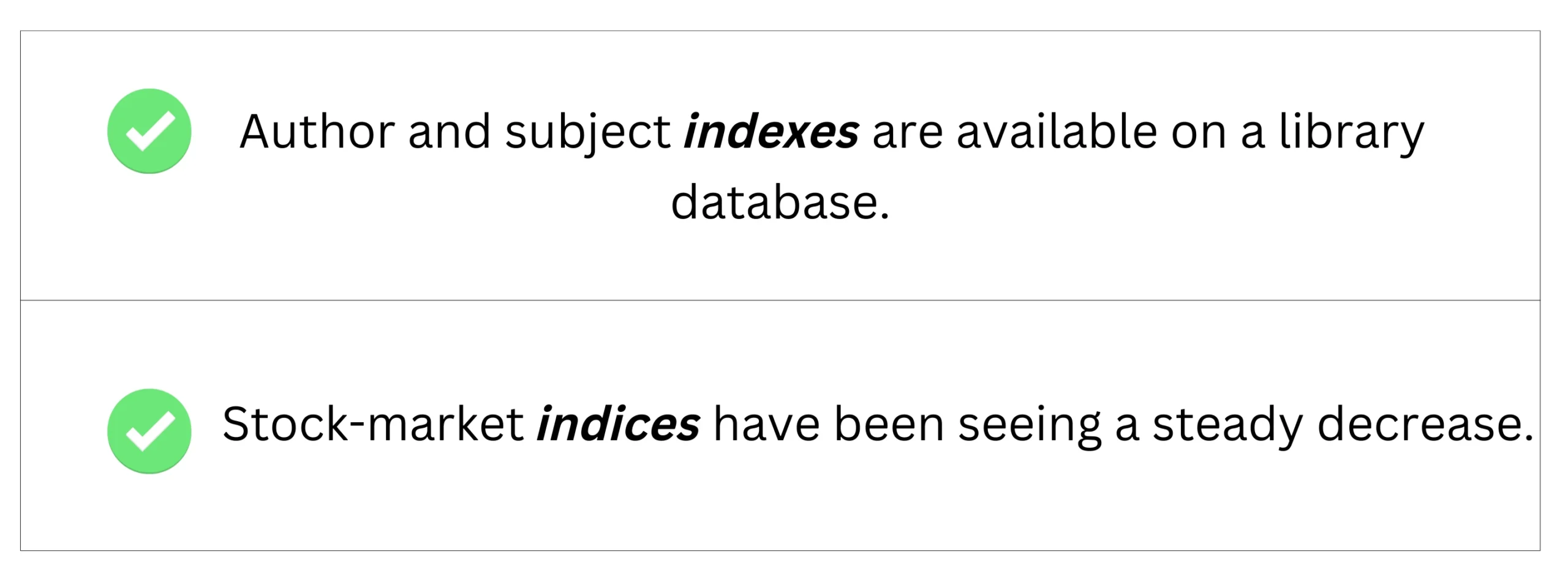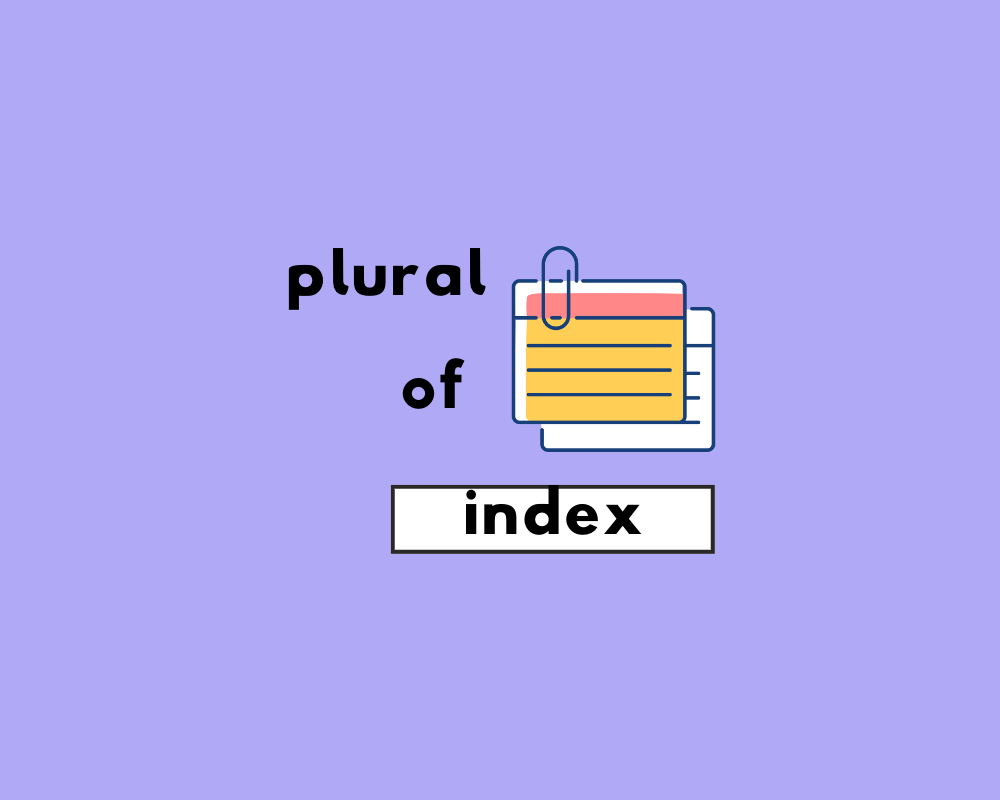What’s the plural of “index”?

The economic indices show a positive trend.
I checked the back of the book for the relevant indexes.
The book had several useful index at the back.
We analyzed the stock market index from several countries.
The noun index accepts two plural forms, indices and indexes. Generally, indices is preferred for stock market or economic contexts (“stock-market indices show a steady decrease”), while indexes is preferred for lists of topics in books.
Is it indices or indexes?
Index accepts both as plurals. The regular plural form (indexes), using –es, is more common in modern English. Indices uses the original Latin suffix –ices for singular nouns ending in -ex (e.g., appendix/appendices).
What’s an index? What’s the definition of index?
Merriam-Webster defines index as:
| Definition of “index” |
|---|
|
Irregular nouns that end in -ex/-ix and -ces/-xes
Irregular nouns ending in -ex/-ix often convert to –ces or –xes as a plural, a characteristic of Latin words. See the chart:
| singular | plural |
|---|---|
| index | indexes and indices |
| matrix | matrices and matrixes |
| appendix | appendices or appendixes |
| codex | codices or codexes |
For “index,” link “indices” to economic data like stock prices; imagine a stock chart labeled “indices.” “Indexes” are for books—picture stacks of books with labeled “indexes.”
“Index”, singular & plural, used in sentences
| “Index” (singular) used in sentences |
|---|
|
A numbered index card was stationed beside each item. The invoices section index page shows a list of all invoices within the system. A death index for Newayago County can be found through the Fremont Library. She touched one with her index finger. |
| “Indices” / “indexes” (plural) used in sentences |
|---|
|
A volume of elaborate indices was edited by I. As these indices represent discontinuous data, it would be preferable to use the negative binomial or the Poisson distribution. Shadows were used as indices of the sun’s position, in combination with angular divisions. In the same way, by dividing by powers of so we may get negative indices. |
Index synonyms
- catalogue
- list
- record
- file
- schedule
Origin of the word index
| Word | Origin & Etymology |
|---|---|
| index | “The forefinger,” from Latin index (genitive indicis) “one who points out, discloser, discoverer, informer; forefinger (because used in pointing); pointer, sign; title, inscription, list,” literally “anything which points out,” from indicare “to point out,” from in- “into, in, on, upon.” |
Worksheet: Latin nouns
According to the blog post, which of the following is NOT a correct plural form of “index”?
When referring to economic data or stock market trends, which plural of “index” is generally preferred?
Which plural form of “index” is preferred when referring to the list of topics or names found at the back of a book?
The plural form “indices” uses a suffix that originates from which language?
According to the post, using the singular “index” when referring to multiple items is incorrect. Which sentence below demonstrates this common mistake?
The latest economic showed a positive trend.
She consulted the back of the book, which contained several useful .
Instead of saying “several useful index”, the correct plural form for a book list is .
When referring to the stock market trend for just one country, you would use the singular word .
We analyzed the cost of living from several different cities.
FAQs
A: The noun “index” has two acceptable plural forms: “indices” and “indexes”. Both are correct. The post explains that the preference for one over the other depends on the specific context.
Q: When do I use ‘indices’?
A: According to the post, “indices” is the preferred plural form when referring to economic data, such as the stock market index. For example, the post uses “The economic indices show a positive trend.”
Q: When do I use ‘indexes’?
A: The post states that “indexes” is the preferred plural form when referring to a list of topics or names found at the back of a book. For instance, “I checked the back of the book for the relevant indexes.”
Q: Are both “indices” and “indexes” correct?
A: Yes, the post explicitly states that “index” accepts both “indices” and “indexes” as correct plural forms. Both are grammatically valid plurals that you can use.
Q: Which plural is more common now?
A: The post indicates that the regular plural form, “indexes,” which is created by adding the -es suffix, is generally more commonly used in contemporary language compared to the Latin plural “indices.”










